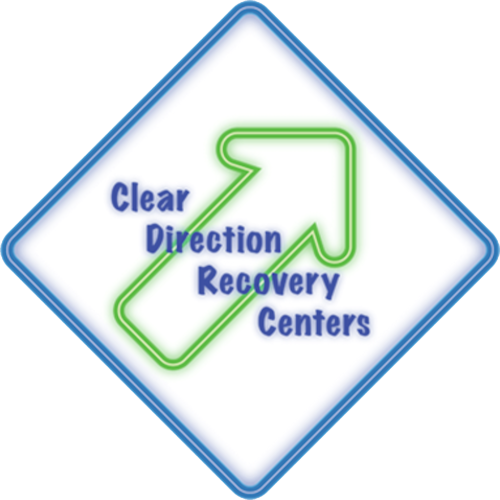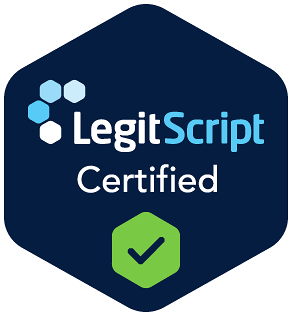Outpatient Alcohol Rehab in New Jersey
Outpatient alcohol rehab in New Jersey offers a flexible and effective treatment option for individuals seeking recovery from alcohol use disorder (AUD) while maintaining their daily responsibilities. Outpatient care allows patients to attend structured therapy sessions while continuing to work, study, or care for their families. For premier outpatient alcohol rehab in New Jersey, Clear Direction Recovery Center stands out as a trusted choice. Our program provides specialized care for alcohol and substance abuse disorders as well as mental health conditions. With a focus on whole-person healing and a robust aftercare program, Clear Direction offers the tools for lasting sobriety in Marlton, NJ.
Explore our outpatient alcohol rehab program in New Jersey and discover how outpatient care can benefit you, including an FAQ to address all your concerns.
Outpatient alcohol rehab is a structured treatment program that allows individuals to receive therapy and medical support while continuing to live at home, work, or attend school. Unlike inpatient rehab, where patients reside at a facility 24/7, outpatient care provides flexibility with scheduled sessions at clinics, hospitals, or treatment centers. This is ideal for those with mild to moderate alcohol use disorders (AUDs) or as a step-down after completing inpatient treatment.
- Assessment: A clinical evaluation determines the severity of addiction, co-occurring disorders, and the appropriate level of care.
- Therapy: Evidence-based approaches, such as cognitive-behavioral therapy (CBT), group counseling, and family therapy, address triggers and help individuals develop effective coping strategies.
- Case Management: Coordinators help with housing, employment, and legal issues to support long-term recovery.
- Medication-Assisted Treatment (MAT): FDA-approved medications such as naltrexone and acamprosate may be used to reduce cravings and prevent relapse.
Why Choose Outpatient Alcohol Rehab

Outpatient alcohol rehab offers a practical and effective treatment solution for individuals seeking recovery without disrupting their daily lives. One of its biggest advantages is flexibility; patients can attend therapy sessions during evenings or weekends, allowing them to continue working, attending school, or caring for family. This makes it a cost-effective alternative to inpatient rehab, as it eliminates residential expenses while still providing structured care and support. Additionally, outpatient treatment allows individuals to immediately apply the coping skills they learn in therapy to real-world situations, reinforcing long-term recovery.
However, outpatient rehab is not for everyone; it works best for those with a stable, supportive home environment and a lower risk of severe withdrawal symptoms. Ideal candidates are medically stable, highly motivated to stay committed to treatment, and capable of managing triggers while living independently. For those who meet these criteria, outpatient programs provide a balanced approach to recovery, combining professional support with the ability to maintain personal and professional responsibilities.
Contact Clear Direction Today!
Why Wait? Find The Help You Need By Reaching Out To Us Today! Our Admissions Team Is Standing By.
Alcohol Treatment Programs
Medical oversight ensures safety during recovery. MAT combines medications like naltrexone with counseling to reduce alcohol dependence. For example, acamprosate helps restore brain chemistry, while disulfiram discourages drinking by causing adverse reactions if alcohol is consumed. Regular check-ins with physicians allow for monitoring of progress and adjustments to treatments as needed.
Therapy is an important aspect of outpatient care because it helps patients identify the root of their AUD and helps them recognize behavioral and thought patterns. At Clear Direction Recovery Centers, our therapeutic programs include:
- CBT: Cognitive Behavioral Therapy (CBT) identifies and changes negative thought patterns linked to drinking.
- Group Therapy: Group therapy builds peer support and reduces isolation by connecting patients with their peers.
- Family Therapy: This type of therapy helps to repair the relationships AUD may have impacted and educates loved ones about addiction.
Holistic care in outpatient alcohol rehab addresses the whole person, including the mind, body, and spirit, through complementary therapies like mindfulness meditation, yoga, and nutritional counseling to support long-term recovery. Case management plays a vital role by connecting clients with essential resources, including housing assistance and vocational training, to remove barriers to sobriety. Together, these approaches create a comprehensive treatment plan that fosters stability, reduces the risk of relapse, and promotes overall well-being during and after rehabilitation.
Outpatient Alcohol Rehab FAQs
Choosing the right outpatient alcohol rehab program can bring up many questions. Below, we’ve answered some of the most common concerns to help you make an informed treatment decision. Whether you’re curious about program length, insurance coverage, or what happens after rehab, this FAQ section provides clear, detailed guidance to support your recovery journey.
The duration of outpatient rehabilitation varies based on individual needs, with programs typically lasting between 3 and 6 months. Intensive Outpatient Programs (IOPs) often require nine or more hours of therapy per week, while standard outpatient care involves fewer sessions for those with milder addiction severity. We adjust treatment length based on progress, with some individuals benefiting from extended support through aftercare programs, such as sober living or alums groups.
Yes, Clear Direction Recovery Centers’ outpatient program offers customized treatment plans tailored to each client’s unique needs. We assess factors like addiction severity, mental health conditions, and personal responsibilities to design a tailored approach. For example, someone with co-occurring anxiety might receive CBT and medication management, while another client may focus on relapse prevention and career counseling. Regular evaluations ensure the plan evolves with the patient’s recovery progress.
Most private insurance plans and Medicaid/Medicare cover outpatient rehab under mental health and substance use benefits. Coverage varies by provider, so it’s essential to verify the specifics of your plan, including copays and session limits. Many New Jersey facilities, including Clear Direction Recovery, offer free insurance verification to improve accessibility.
Preparation helps ensure a smooth transition into treatment. Start by arranging time off work or school, if needed, and setting up reliable transportation to sessions. Pack essentials like ID, insurance cards, and comfortable clothing, but avoid bringing addictive substances or paraphernalia. Discussing your commitment with loved ones or a sponsor can also build a support network before treatment begins.
Aftercare is critical for maintaining sobriety, and many programs provide step-down options, such as weekly therapy or alums meetings. Some clients transition to sober living homes for added structure, while others engage in 12-step programs or outpatient follow-ups. Clear Direction Recovery, for example, offers ongoing case management to support employment, housing, and relapse prevention, promoting long-term success.
Yes, one of the main advantages of outpatient treatment is that it’s designed to accommodate work schedules. Programs typically offer evening or weekend sessions, allowing you to maintain employment while receiving care. Your treatment team will help create a schedule that balances therapy with your professional responsibilities, ensuring you get the support you need without disrupting your career.
Family involvement is a cornerstone of our outpatient program, with multiple ways for loved ones to support recovery. We offer dedicated family therapy sessions to improve communication, rebuild trust, and educate relatives about addiction. Many programs also include monthly family education workshops that teach coping strategies and warning signs of relapse.
Recover with Outpatient Alcohol Rehab at Clear Direction
Clear Direction Recovery Centers is proud to serve New Jersey with our customizable outpatient rehab programs. With a holistic approach and dedication to evidence-based care, our outpatient alcohol program helps our patients recover from AUD without the commitment of residential care. We combine individual counseling, group therapy, and family support to address the root causes of addiction and build healthy coping strategies. For individuals who benefit from medication-assisted treatment (MAT), our medical team closely monitors their progress to ensure safety and effectiveness.
What sets Clear Direction apart is our personalized approach—every treatment plan is tailored to your unique needs, whether you’re transitioning from inpatient care or beginning your recovery journey. Our alum network and continued case management ensure you have support long after completing the program.
Take the First Step Toward Recovery Today
If you or a loved one is struggling with alcohol addiction, don’t wait to seek help. Call Clear Direction Recovery Centers at [(856) 391-0466] or visit our website to verify your insurance and schedule a confidential assessment. Our compassionate team is ready to guide you toward a healthier, sober future—because recovery is possible, and it starts here.
Your journey to lasting sobriety begins with one call. Reach out today.

